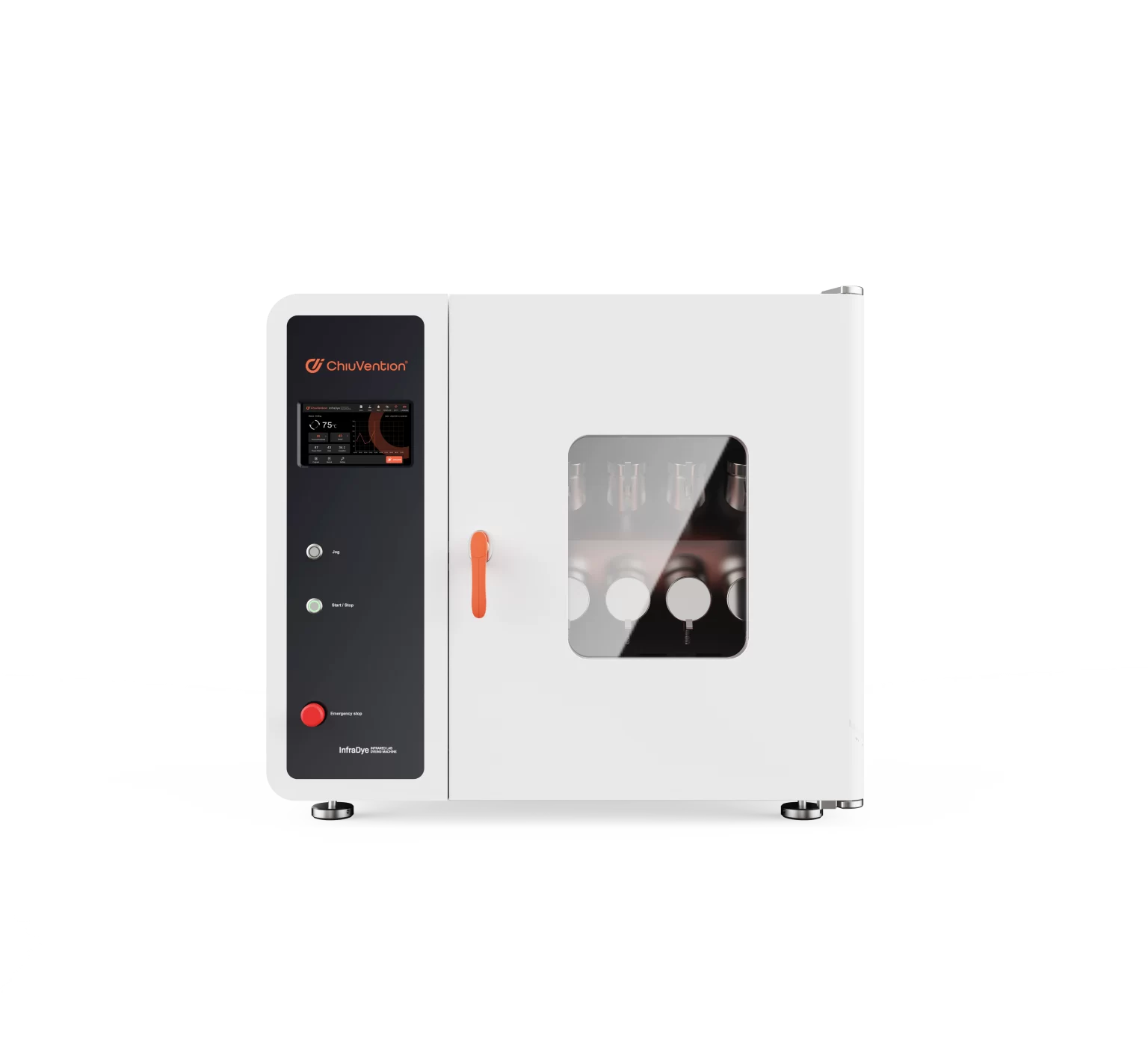Infrared Lab Dyeing Machine: Innovation in Precision Dyeing
Introduction
The textile industry thrives on precision, consistency, and innovation—especially in the area of color development and quality control. Among the key advancements supporting this is the Infrared Lab Dyeing Machine, a vital tool for dyeing small fabric or yarn samples under laboratory conditions. This machine has revolutionized the way dyeing trials are conducted by offering greater accuracy, efficiency, and energy savings compared to traditional methods.
In this article, we’ll explore the purpose, features, benefits, and applications of infrared lab dyeing machines, along with how they support modern textile development and sustainability efforts.
What Is an Infrared Lab Dyeing Machine?
An Infrared (IR) Lab Dyeing Machine is a compact, laboratory-scale dyeing unit that uses infrared heating technology instead of conventional water or glycol baths. It is specifically designed to simulate real dyeing processes on a small scale, helping textile manufacturers, researchers, and quality assurance teams develop and test dye formulations before full-scale production.
Unlike traditional beaker dyeing machines that use liquid heating mediums, infrared machines apply dry heat via radiation, ensuring uniform and rapid temperature control with less environmental impact.
Why Infrared Heating?
Infrared heating brings several advantages over conventional heating systems in lab dyeing:
- No Glycol or Water Medium Needed: Reduces maintenance, eliminates chemical waste, and minimizes environmental risks.
- Uniform Heating: Infrared radiation penetrates evenly, preventing temperature fluctuations across samples.
- Faster Dyeing Cycles: Rapid heating and cooling help speed up the dyeing process.
- Energy Efficiency: Less power consumption compared to water-based heating systems.
- Cleaner Operation: No risk of beaker contamination from glycol or external heating baths.
Key Features of Infrared Lab Dyeing Machines
Modern infrared lab dyeing machines come equipped with advanced features that allow users to conduct precise, repeatable dyeing experiments. These typically include:
| Feature | Description |
|---|---|
| Multiple Beaker Positions | Usually supports 12–24 dyeing beakers, allowing multiple simultaneous trials. |
| Digital Temperature Control | Programmable controllers allow accurate heating up to 140–150°C. |
| Independent Beaker Rotation | Ensures uniform dye liquor movement and dye penetration. |
| Touchscreen Interface | Easy-to-use display for programming dyeing cycles and parameters. |
| Safety Features | Over-temperature protection, automatic shutdown, and safety covers. |
| USB/PC Connectivity | For recipe storage, data logging, and remote monitoring. |
These machines are designed to closely mimic industrial dyeing conditions, making them ideal for reproducibility and standardization.
Applications of Infrared Lab Dyeing Machines
Infrared lab dyeing machines are used in various segments of the textile industry and beyond:
1. Color Development
- Create and test new dye recipes quickly.
- Match customer color requests with small fabric samples.
2. Process Optimization
- Fine-tune parameters like temperature, time, pH, and liquor ratio before scaling up.
3. Quality Control
- Evaluate dye consistency and reproducibility across different fabric lots.
4. Research & Education
- Widely used in textile research institutes and universities for teaching and innovation.
5. Sustainability Trials
- Test low-impact dyeing processes with reduced water and chemical usage.
Benefits of Using Infrared Lab Dyeing Machines
✅ Improved Efficiency
Faster heating and dyeing cycles reduce turnaround time for development and testing.
✅ Space-Saving Design
Compact footprint ideal for labs with limited space, unlike large beaker systems.
✅ Environmental Friendly
No need for harmful glycol heating media; lowers water and energy consumption.
✅ High Repeatability
Standardized heating and agitation ensure reliable results that can be easily scaled.
✅ Cost Effective
Reduces waste of dyes, auxiliaries, and fabrics by conducting dye trials on smaller samples.
Dyeing Process in an IR Lab Dyeing Machine
Here’s a simplified workflow:
- Sample Preparation: Fabric or yarn samples are cut, weighed, and scoured if necessary.
- Beaker Loading: Dye solution is prepared in small beakers along with auxiliaries.
- Programming: Parameters such as heating rate, dwell time, temperature, and cooling rate are set via touchscreen or PC.
- Dyeing Cycle: The machine heats the beakers using infrared radiation while gently rotating them to ensure even dye distribution.
- Post-Treatment: After dyeing, samples are removed, rinsed, soaped (if needed), and dried.
- Assessment: Color matching, fastness tests, and visual inspections are carried out.
Choosing the Right Infrared Lab Dyeing Machine
When selecting an IR lab dyeing machine, consider the following:
- Number of Beakers: Based on sample throughput needs.
- Temperature Range: Ensure it covers your required dyeing temperatures.
- Fabric Type Compatibility: Check if it supports cotton, polyester, wool, etc.
- Ease of Programming: User-friendly software can reduce training time.
- Maintenance & Support: Opt for machines from reputable manufacturers offering technical support.
Popular manufacturers include Mathis, Roaches, Labtex, and SDL Atlas, all offering high-quality, lab-scale dyeing machines with IR technology.
Conclusion
The Infrared Lab Dyeing Machine has become an essential tool in modern textile laboratories. By offering precision, speed, and sustainability, it empowers researchers, technicians, and manufacturers to innovate confidently while reducing environmental and operational costs.
As the textile industry moves toward cleaner and smarter production methods, infrared dyeing technology provides a robust platform for eco-friendly dye development, color matching, and quality assurance—ensuring better results both in the lab and on the production floor.
For more information on textile testing methods/standards
or textile testing machines, contact us:
What’s App: +86 180 2511 4082
Tel: +86 769 2329 4842
Fax: +86 769 2329 4860
Email: sales@tes.hk






